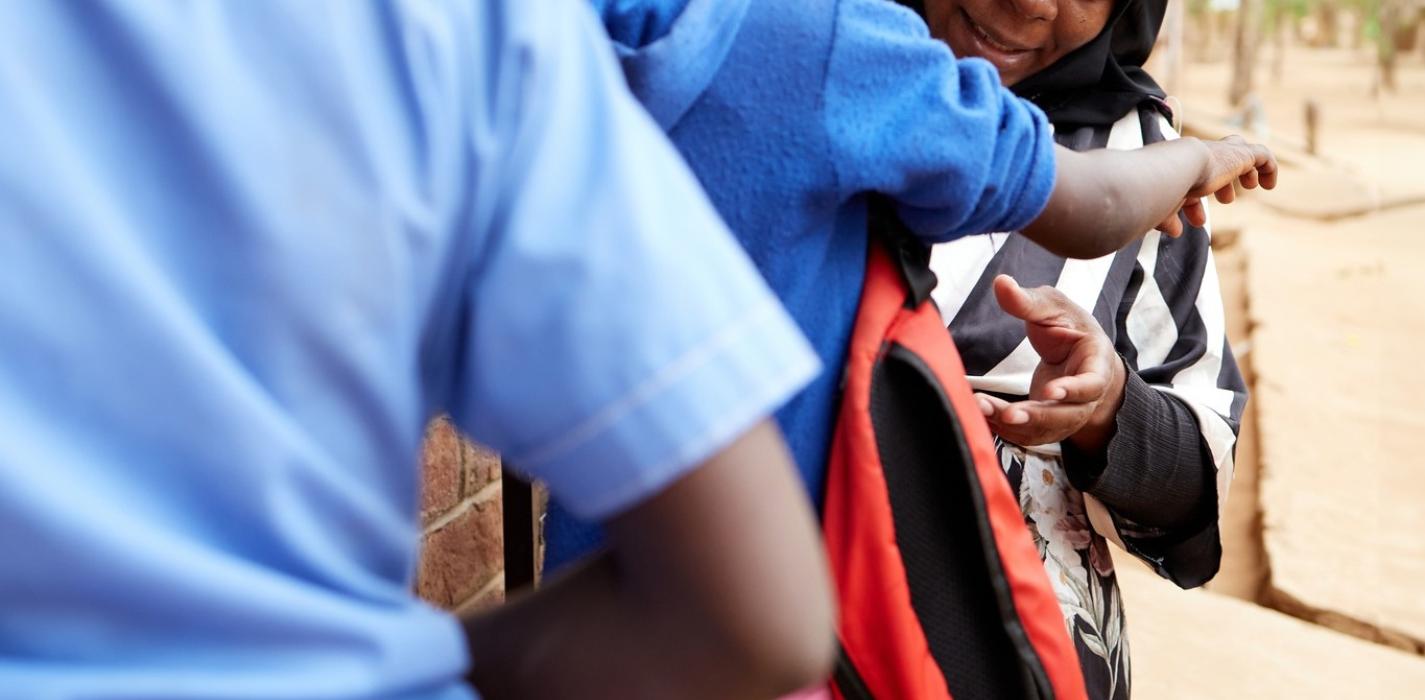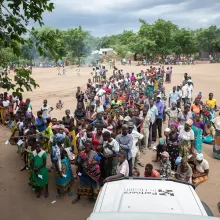Community Programs

Community Programs plays a vital role in health promotion, demand creation, and emergency response: By engaging communities, conducting dialogue sessions, utilizing mobile vans, and implementing targeted interventions like SHARC and SKILLZ BLA, CP strives to improve health outcomes and empower individuals to make informed decisions about their health.
Our Impact
Since its inception in 2012, the Community Program has actively supported the Environmental Health Department of Neno DHO in rolling out the National Health Promotion Strategy. Through awareness campaigns and social dialogue sessions, CP addresses various health issues such as cholera, malaria, communicable diseases, family planning, and sexual gender-based violence. Additionally, CP provides support in water, sanitation and hygiene initiatives and triggering activities. The program has also equipped adolescents with information on sexual reproductive health and rights.
-
ONEResponding to outbreaks
Provided technical and financial support in responding to emergencies such as cholera, typhoid fever, scabies, and COVID-19 outbreaks.
-
TWOSHARC
SHARC and aSHARC for adolescents mobilize community members to get screened, access healthcare, and improve the quality of their lives.
-
THREESkillz BLA
Focused information on SRHRs, for adolescents aged 10-14. Currently, CP has conducted 7 SKILLZ BLA Cohorts.
Community Programs
Community Programs (CP) play a crucial role in the Community Health Department. The program was established in 2012 to implement health promotion interventions and create demand for healthcare services.
Health Promotion and Demand Creation
CP actively supports the Environmental Health Department of Neno DHO in rolling out the National Health Promotion Strategy. Through awareness campaigns and social dialogue sessions, CP addresses various health issues such as cholera, malaria, communicable diseases, family planning, and sexual gender-based violence (SGBV). Additionally, CP provides support in water, sanitation and hygiene (WASH) initiatives and triggering activities.
SHARC Event and Adolescent SHARC (aSHARC):
PIH Malawi conducts SHARC activities to mobilize community members to get screened in their respective communities, access healthcare, and improve the quality of their lives.
Noting that adolescents felt uncomfortable accessing services in the presence of parents or guardians, PIH Malawi introduced the Adolescent SHARC (aSHARC), which provides youth-friendly, gender-sensitive, and rights-based sexual and reproductive health screening services directly at the community level.
Health promotion provides a platform to raise awareness of certain health conditions, address behavioral barriers to the utilization of health services, and behavior change. In addition to that, this platform creates demand for essential health services and empowers community members to make healthy choices.
Prior to the event, communities are mobilized through mobile vans, focus group discussions, and any other community gatherings to inform them of the event day, type of services, accessibility, and choice of services.
CP conducts dialogue sessions to facilitate community engagement and behavior change. These sessions address various subjects such as Malaria and SGBV, bridging gaps in risk communication and community involvement.
During health campaigns, mobile vans are utilized to disseminate specific health messages while mass campaigns (radio adverts and youth open days) aim at promoting health awareness and participation.
Conditions Screened During SHARC:
Ten conditions are currently screened during SHARC events. These conditions include; COVID-19, malnutrition, hypertension, tuberculosis (TB), HIV, gender-based violence (GBV), diabetes, cervical cancer, sexually transmitted infections (STIs), and family planning (FP).
Positive cases are referred to the nearest health facility for appropriate management, while immediate treatment is provided for FP and STIs. Community Health Workers (CHWs) are deployed to ensure follow-up and adherence to medical care appointments.
Responding to Outbreaks:
CP provides technical and financial support to the Environmental Health Department in responding to emergencies such as cholera, typhoid fever, scabies, and COVID-19 outbreaks. These collaborative efforts ensure effective crisis management and community protection.
Health Future Clubs (SKILLZ BLA):
To reach more adolescents with focused information on sexual reproductive health and rights (SRHRs), the Health Future Clubs, also known as SKILLZ BLA, were implemented.
These clubs target adolescents aged 10-14 and aim to impart knowledge, build capacity, and train peer educators. The curriculum covers SRHRs, prevention of sexual gender-based violence (SGBV), and sexually transmitted infections (STIs), including HIV and AIDS.
Each club recruits 15 boys and 15 girls from villages surrounding a health facility who are selected randomly after an extensive mobilization of adolescents. Parents and guardians parents and guardians are consulted for their consent in accepting the release of their children to teen clubs. These recruits attend the clubs for 17 weeks, after which they graduate and another group is selected. There is one club per facility. Currently, CP has conducted 7 SKILLZ BLA Cohorts.
SKILLZ BLA follow-up meetings for graduates are conducted in different places within the district to engage with the graduates. The objectives of the follow-up are as follows;
- To link them up to existing youth clubs and youth corners within their communities and health facilities respectively.
- To understand what they want to do after their graduation.
The graduates that are far away from Youth Corners are strongly encouraged to join the nearest youth clubs in their respective communities.
Skills BLA intends to bring solutions to some of the challenges young people face like less access to information, resources, and services than those who are older which leads to low levels of health-seeking behavior among adolescents.
Overall, CP plays a crucial role in Health Promotion and Demand Creation for medical services while responding to emergencies in the community.
